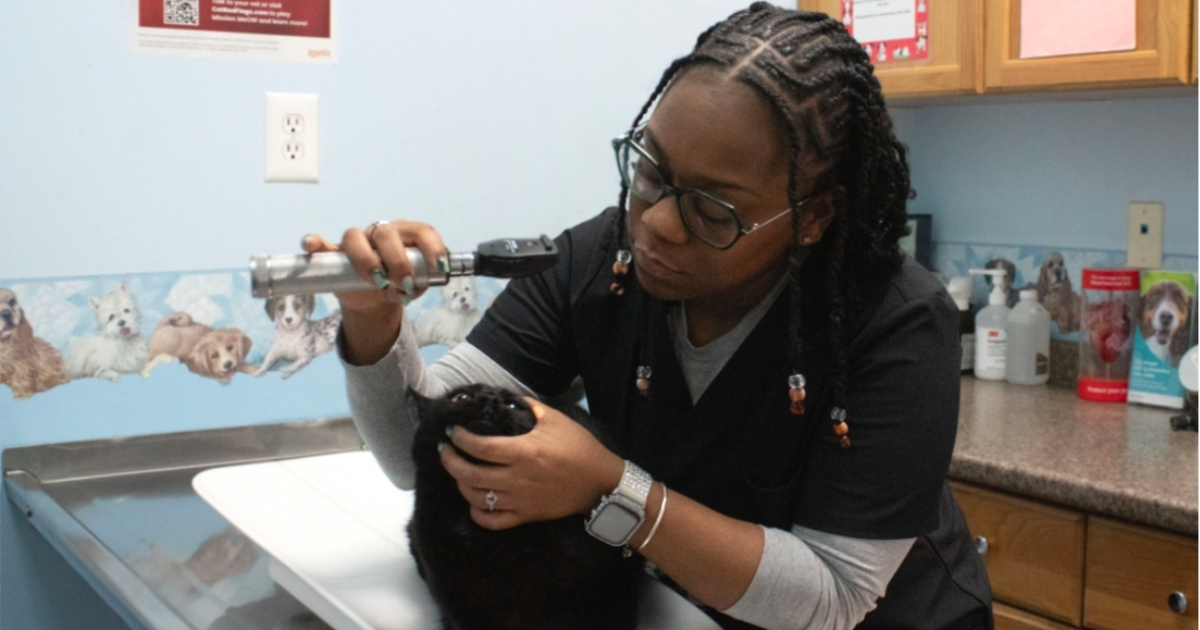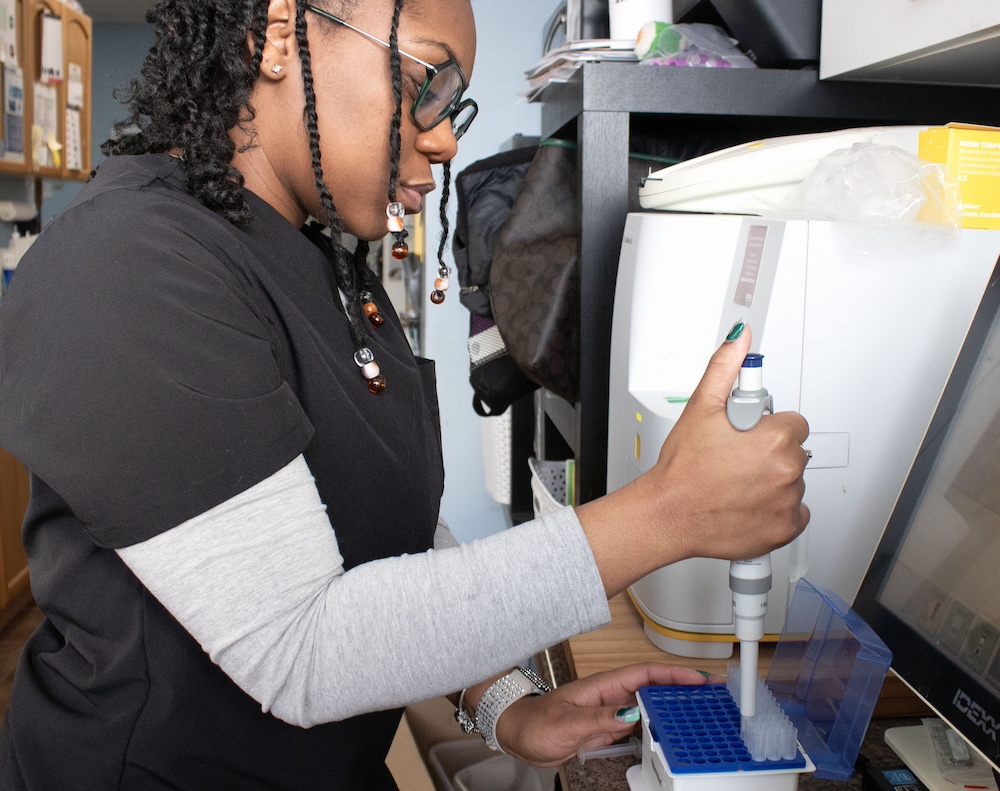
Category: Animal and Food Sciences

UD’s non-thesis M.S. in Animal Science prepares Kayla Pettiford for veterinary school
May 02, 2024 Written by Molly Schafer | Photos by Jeremy Wayman
Growing up with guinea pigs, hamsters, parakeets, turtles, and fish, University of Delaware alumna Kayla Pettiford planned a career in veterinary medicine from a young age.
"It's always been what I wanted to do,” said Pettiford, an alumna of UD’s non-thesis master’s in Animal Science. “And I can't see myself doing anything else."
Veterinary school acceptance is notoriously competitive, and the rigorous training can make for a stressful experience.
“I know many students feel overwhelmed and stressed in veterinary school, and I didn't want to feel that way,” said Pettiford. “Everybody's journey to vet school can look a little different. I knew I needed more technical understanding and background.”
Pettiford graduated with an undergraduate degree in pre-veterinary science from Delaware State University in 2021. Pettiford took her time researching master’s programs. UD's concentration in Veterinary Biosciences, Biotechnology, and One Health (VBBOH) stood out.
“I wanted to put myself at a university where I would gain the most experience,” explained Pettiford.
At UD, Pettiford worked closely with Behnam Abasht, professor of animal genetics, on his research into wooden breast, a muscle disorder in commercial broiler chickens.
“We hatched the eggs, cared for the chicks, performed necropsies, looked through the microscope,” Pettiford remarked. “Seeing the research from beginning to end was eye-opening. And Prof. Abasht walked me through the process.”
Pettiford found the study of histopathology, the microscopic examination of tissue and cells to diagnose disease, exciting.
“Histopathology wasn't even on my radar before the non-thesis master’s program,” she emphasized. “Now, it will become my focus; my lab and research experience at UD gave me that direction.”
After finishing her UD graduate program, Pettiford is ready for veterinary school. She is thankful to Prof. Tanya Gressley, associate dean of graduate programs, who answered Pettiford's many questions from the application process through graduation.
“She helped prepare me,” acknowledged Pettiford. “I feel confident that when I go to vet school, I will have a solid background to help me. That is the most important thing: having a solid foundation.”

Pettiford believes good communication skills are essential to succeed as a veterinarian. Her role as a teaching assistant for Prof. Gressley’s Animal Handling (ANFS 112 ) course helped her grow these skills. Communication is vital in her current role as a veterinary technician at Animal Haven Veterinary Center in Bear, Delaware.
“I just love meeting new pet parents,” said Pettiford. “It's always a good experience to teach them new things and answer questions that they might have.”
Working with small animals and cancer patients as a veterinary technician broadened her animal handling experience.
“I love what I do as a technician: making sure the pet is comfortable, doing the best I can for their care,” attested Pettiford “That's something I take pride in doing.”
Pettiford prepares her veterinary school applications with an eye to the future. She plans to focus on exotic animals and wildlife along with histopathology.
“I want every day I show up to work to be unique and spontaneous!”
